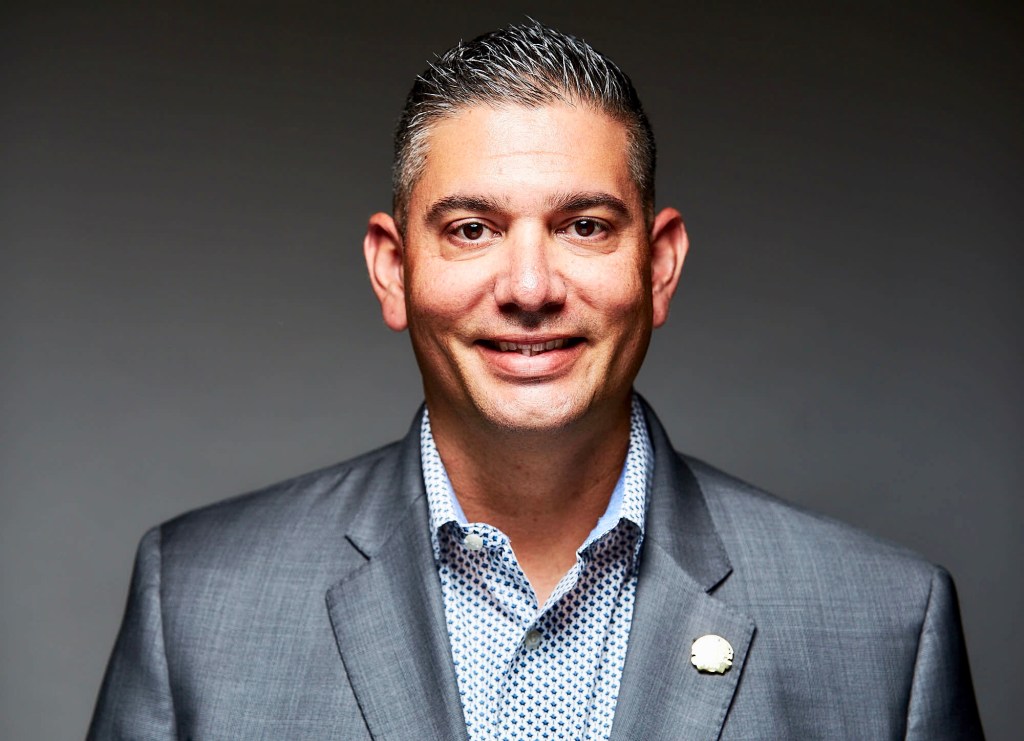Editor’s Note: This is the third installment in the “Industry Warriors” series, a collection of profiles on veteran real estate professionals and loan originators who produced high volumes pre-9/11 and pre-2008, weathered those economic downturns and rebounded even stronger.
In a few short years in the mid-2000s, Nick Solis built a large brokerage in California. As the Great Recession set in, he anticipated a massive shift.
“I was thinking 45%, maybe a 60% downturn. At the time, I had two offices, high overhead. It turned into being a situation where we lost 99.5% of our revenue,” he said. “I went broke, trying to keep the doors open.”
In the years since, Solis, broker-owner of One80 Realty in the California Bay Area, has rebuilt his business and held leadership positions with the California Association of Realtors and the National Association of Realtors.
HousingWire spoke to Solis about lessons learned from 2007-2009 that provide a roadmap for him today.
This interview has been edited for length and clarity.
HousingWire: What are you doing within your real estate and lending business to adapt to the current market situation?

Nick Solis: I’m talking to my past clients, engaging with my sphere of influence, to let them know what’s going on. We can’t say, ‘Okay, this is exactly what’s happening. Your house is going to appreciate or lose X amount of value.’ Instead, we say, ‘How are you doing? How are your kids? How’s your spouse? How’s your partner doing? How’s work?’ That phone call or a text message, or Facebook Messenger with somebody that you don’t typically interact with on a day-to-day basis is more appreciated right now because they’re not running off to a soccer practice or a doctor’s appointment. They’re really just stuck at home.
Checking up on them versus trying to sell them something is a very big difference. I still do lending and real estate because interest rates are pretty good. I could probably refinance three quarters of my past clients, if not more, but do they really want to hear from me right now on a sales pitch, when they’re potentially afraid for their life or a loved one’s life, or they’re stuck at home, not knowing if they’re going to keep their job?
HW: How are you encouraging your team to stay positive during this time? How are you staying positive?
NS: Just sharing what’s going on, the things that I’m seeing. It’s not, ‘Here’s the definitive, x y, z.’ It’s, ‘Things are a little bit crazy right now. We really can’t do much business, if any, out of the house, and so now’s a good time to go through and take a deep breath.’
One colleague just had a baby about eight weeks ago, so saying, ‘Instead of feeling like you have this conflict of balancing work and spending time with your newborn daughter, spend time with your baby. Then giving him bigger ideas — cleaning up your database, touching base with your clients, talking to your friends because I believe that’s where the value’s at and the potential conversations for future business.
I consult for a lot of different brokerages and agents across the country, sharing that same type of thing with them. It’s to be personable, to not try to sell, but then also to take the time to look at your business, to look at what your financials are, to see where you could cut costs, to see where you could potentially make investments.
Then to get all your systems cleaned up, get all your profiles updated, all these little things that we never ‘have time for.’ Now, we have a lot more time to do them.
You can’t give up. Back in 2008, I was so broke. The first dating anniversary with my wife now, but it was my girlfriend at the time, I was so broke. I had to go through the house, looking for change. You have these different places you put change in the house, right? I’m getting into couches, and I go to the supermarket. I use a Coinstar, I turn it into a voucher, and I go buy a couple steaks. I got home, I’m barbecuing them, and I dropped the steaks.
My girlfriend, now wife, came out and said, ‘What’s wrong?’ I said ‘I’m just failing and I dropped the steaks’ and she picks them up and says, ‘Let’s go wash them off.’ I still look back on that story today. I have my kids to say, even if this sucks, or this isn’t ideal, or this is actually brutal, it could it could be so much worse, right?
If you’re positive about your life, then I feel like you’re always going to be able to pour it into your business. Especially when you feel like you’re in a good place.
I’d love to say, I had all this money saved up; I was the smartest guy; and I made it through. That’s not my story. I fell flat on my face. I realized where my shortcomings were, and I’ve tried to adapt since then. Now trying to look back on this situation, there’s a lot that I could draw from.
HW: What did you do in past economic shocks to successfully navigate the downturns?
NS: You have to really look at your business — not only what the agents and what the consumers are doing and the economy, but you really have to look at your numbers as well. Quite frankly, I was not prepared to do that back then. I fell flat on my face.
I wouldn’t say that I succeeded; I succeeded coming out of it. I succeeded staying in the industry. But I definitely learned some much tougher lessons than I should have. It’s really prepared me to be able to look at this situation a lot differently, understanding the dynamics, knowing what to look for with my financials, and being prepared to maneuver.
One of the biggest things I learned over the years is being able to know where your numbers are at; you’re able to right-size the business on the go, and and make those decisions where you could either alleviate debt, end contracts, buy yourself out of different things, or in good times being able to reinvest and grow the company.
HW: Given your history in those past economic downturns, how can we pull through now that the spring buying season has been drastically impacted?
NS: Everything is local. In California, we have a lot of jobs; less than we had three weeks ago, but we still have a lot of jobs. There’s a lot of growing businesses, and we have a massive shortage of housing here. So the reality of it is in the Bay Area market, people still need to buy and sell because they need to be able to move in and out of the area.
There’s a lot of people who joke around, ‘Are we gonna see a baby boom out of this?’ Some other folks are saying, ‘Are we going to see a boom in divorce after a couple of months with your spouse back at home?’ That’s possible, too. Those type of situations force people to make different choices with their housing needs.
As the constraints start to come off, and things start to become a little bit more normalized with the mortgage market — which is kind of in shambles right now — those two things are going to come together, where people say rates are still pretty good, affordability is probably even a little bit better than it was six months ago. I think that’s going to bring a lot of people off of the fence.
Then there’s this new group of people who didn’t get laid off, who are doing well in their jobs, and they’ve been waiting to try to get into the housing market. There’s those new first-time homebuyers, too. Do I think it’ll go from like zero to 100? No, but I think the spring buying season is going to be pretty good.
It’s not going to be incredible, but I don’t think it’s going to be something where it just falls on its face. I do see that spring season extended into the summer, for sure.
HW: What piece of advice from your history in downturns would you give to others in your field trying to navigate COVID-19?
NS: I’ve got a saying that applies: There’s a million ways to make a million dollars. First off, you shouldn’t have an expectation to try to make a million dollars today or this year, but the value in that statement is there’s a lot of different ways you can succeed.
They don’t have to feel like, if they’re a team leader, they have to keep their team. Or if they’re a standalone agent, that now’s not a good time to be able to grow their team. If they have a broker’s license, it doesn’t mean they have to be a brokerage owner. Look at what you value personally and also as a business person, and then try to design the life and the future that you want around those values.
I believe we’re gonna use a lot more digital solutions … Being able to adopt e-signature platforms, which is a lot more popular now, but that adoption is still not where it could be. Being able to use different devices where you can work on mobile as opposed to having to go into an office every day; instead of jumping in the car and driving to a client’s house, getting on a Zoom call
I think the thing that’s really going to get mass adopted is going to be the 3D technology to be able to walk through a house and scan up and down, left and right at your own pace … I think a lot of these changes are going to become ingrained in us. And even though they may not be needed for health reasons, the practicality of it’s going to make a lot of sense, and it’s going to stick.






